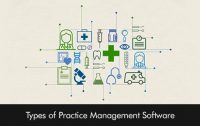In the constantly shifting landscape of current medicine, healthcare management software appears as a key tool for medical professionals. As patient needs grow more complex and regulatory requirements continue to evolve, medical practices must adjust to stay successful and efficient. This cutting-edge software is designed to optimize operations, enhance patient engagement, and improve overall practice efficiency.
From arranging appointments to billing and data analysis, practice management software unifies various elements of medical administration into a integrated system. By embracing this technology, healthcare providers can not only optimize their workflows but also focus more on what truly counts: delivering excellent patient care. As we consider the horizon, it becomes clear that practice management software is not just an alternative but a necessity for succeeding in the world of modern medicine.
Main Aspects of Healthcare Management Software
Medical practice software is designed to optimize the operations of healthcare facilities, making it simpler for healthcare professionals to manage their day-to-day activities. One of the important aspects is appointment management, which enables medical offices to organize patient visits smoothly. This feature generally comprises automated reminders for patients, minimizing the number of absentees and ensuring that providers can handle their schedules well.
Additionally, is billing and invoicing capabilities. These capabilities enhance the monetary processes of a practice by automating the billing process, tracking payments, and managing insurance claims. This not only conserves time for the administrative staff but also enhances cash flow and lowers the chances of billing errors, which can be devastating to a practice's financial health.
Furthermore, practice management software often includes patient communication tools. These tools allow for safe messaging between patients and healthcare providers, allowing for easier appointment confirmations, follow-ups, and data exchange. Improved communication leads to better patient satisfaction and engagement, which can ultimately enhance health outcomes and develop a dedicated patient community.
Benefits for Healthcare Providers
Healthcare management systems offers healthcare providers a simplified solution for managing their routine tasks. By streamlining administrative tasks such as appointment setting, billing, and client handling, this software reduces the time clinicians spend on paperwork, allowing them to dedicate more time to patient care. The integrated systems enable rapid access to patient records, facilitating effective communication among staff members and improving the overall workflow within the clinic.
Moreover, the adoption of practice management software enhances the consumer experience. With features such as web-based scheduling, reminder notifications, and safe communication, patients enjoy increased convenience and engagement in their healthcare journey. This better interaction can lead to higher patient satisfaction rates and better retention, ultimately enhancing the practice’s reputation and financial performance.
Additionally, practice management software is essential for efficient financial management. These systems provide comprehensive reporting tools that enable healthcare professionals to track their revenue streams, track claims, and analyze practice performance. By identifying trends and opportunities for growth, healthcare providers can make strategic choices that enhance profitability and ensure the sustainability of their practice in an ever-evolving healthcare landscape.
Upcoming Developments in Practice Management
As tech keeps to advance, the future of clinical management software will likely be greatly influenced by artificial intelligence and machine learning. These technologies will enable more complex data analytics, leading to better decision-making and improved client results. For example, AI can help in anticipating patient needs and optimizing scheduling, enhancing the overall efficiency of medical practices. By leveraging vast amounts of data, practices will be able to adapt their services more accurately to meet the needs of their patients.

One more emerging trend is the merging of telemedicine features within healthcare management platforms. The pandemic has sped up the embrace of telemedicine, and this integration will persist to expand. Software solutions will more offer blended models that integrate in-person visits with virtual consultations, allowing clinics to respond to varied patient needs. This adaptability not only boosts patient satisfaction but also broadens the opportunity for reaching disenfranchised communities.
In conclusion, the emphasis on client involvement will transform how healthcare management software functions. Tools that facilitate immediate communication between healthcare professionals and clients, such as patient gateways and smartphone apps, will turn into standard. Enhanced engagement features will enable clients to take charge of their healthcare, leading to improved adherence to care plans and better health results. As practices develop, the solutions will play a key role in fostering lasting connections between healthcare professionals and their clients, guaranteeing a more responsive and client-focused methodology to service provision.
